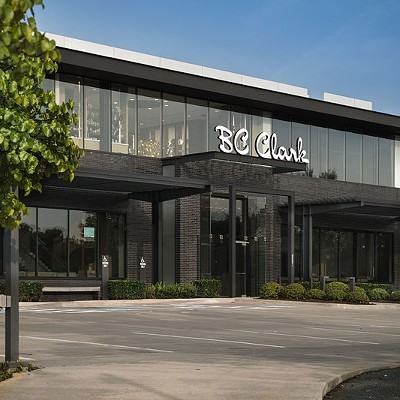
Higher learning has picked up the lessons of sustainability. At the University of Central Oklahoma, for example, a commonsense idea to make university leaders better stewards of tuition and tax dollars has become a campus-wide culture.
“Somebody has to take a leadership role and see if these things work,” said Tim Tillman, now in his second year as UCO’s sustainability coordinator. “Fortunately for us, the projects we have tried have worked out tremendously.”
In 2001, UCO entered a performance contract with Johnson Controls, a global company specializing in energy efficiency and sustainability. At that time, the university was challenged with aging facilities, deferred maintenance issues and lack of funds. Johnson Controls identified projects aimed at saving energy and reducing waste. UCO has used bond funds to make $14 million in infrastructure improvements.
Over that period, the university has saved more than $10 million and reduced its carbon dioxide emissions by 226 million pounds. That’s the equivalent of taking 18,156 cars off the road and saving 101 million kilowatt-hours (the energy used by 4,088 homes). Its conservation practices have also omitted the need for the equivalent of 206 Olympic-sized pools of water.
That environmental spirit has spread to other programs. In 2007, UCO began purchasing all its electricity from wind power provided by Edmond Electric, saving the university about $30,000 annually.
And UCO is among a number of universities expanding sustainability initiatives, ranging from a community garden on Oklahoma City University’s campus to the University of Oklahoma’s Norman campus purchasing 90 percent of its OG&E-supplied electricity from renewable sources. In 2013, that figure will reach 100 percent.
Home, green home
Green is good for small business. Trey Parsons, who began an energy efficiency consulting group two years ago, can attest to that.

“I was looking for a place where I could help people, make a difference and a living at the same time,” he said.
His company, Enersolve, performs energy audits on existing homes, providing homeowners with an energy-efficient action plan.
In addition, Parsons and partner Jason Branson consult homebuilders on how to build green homes more cheaply.
“We don’t buy cars without at least looking to see what the mileage is,” Parsons said. “But we buy homes and move into them, and it’s a mystery as what it’s going to cost you on a month-to-month basis.”
Going the extra yard
Willie Collins tried to start a green lawn-care business five years ago, but the technology wasn’t there.
“Right now all the electric mowers use batteries,” said Collins, owner of Urban Lawn and Garden, one of Oklahoma City’s few sustainable lawn care companies. “Five years ago, that didn’t exist. You had to plug it in, and you only had 60 minutes on a mower.”
In its second year of operation, Urban Law and Garden offers green alternatives for homeowners. Collins uses mulching mowers because grass clippings feed and re-seed clients’ lawns. He cuts lawns higher, about two inches tall, which helps grass fight off weeds and keep water bills low. He uses a natural fertilizer that provides nutrients to the soil.
Collins uses all electric equipment, drives a Toyota Prius hybrid from job to job and installed $10,000 worth of grid-tied solar panels on the roof of his shop with the intent of running a carbon-neutral business.
“We are really trying to push the envelope,” he said.
One man’s junk
Junk-Boss is an Edmond company specializing in residential and commercial junk removal. Owner Hunter Magness said he recycles more than half of what he collects, including clothes, furniture, appliances, electronics, paper and scrap metal.
He would recycle even more if Oklahoma had better recycling infrastructure in place, Magness said.
“It’s so hard,” he said. “They give each household in Oklahoma City a tiny blue box to recycle, and if you go to some of the dumps, you’ll see homeowners actually out there with their cars, loading up the recycling bins.”
Recycling helps divert trash destined for the landfill and lowers his overhead, and he makes some money by selling scrap metal, but sustainable practices are not necessarily profitable in his business, Magness said.
“I just want to help people.”











